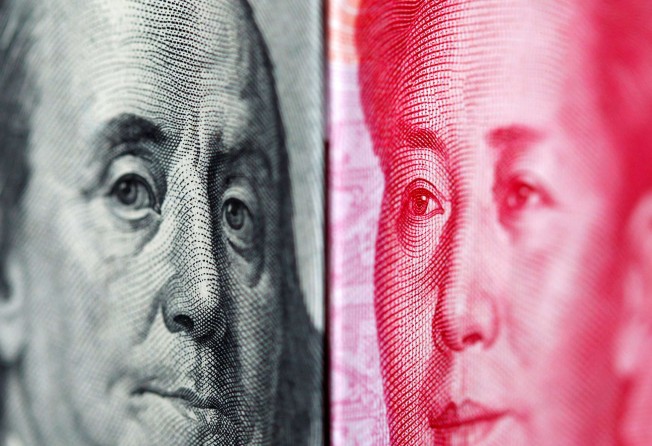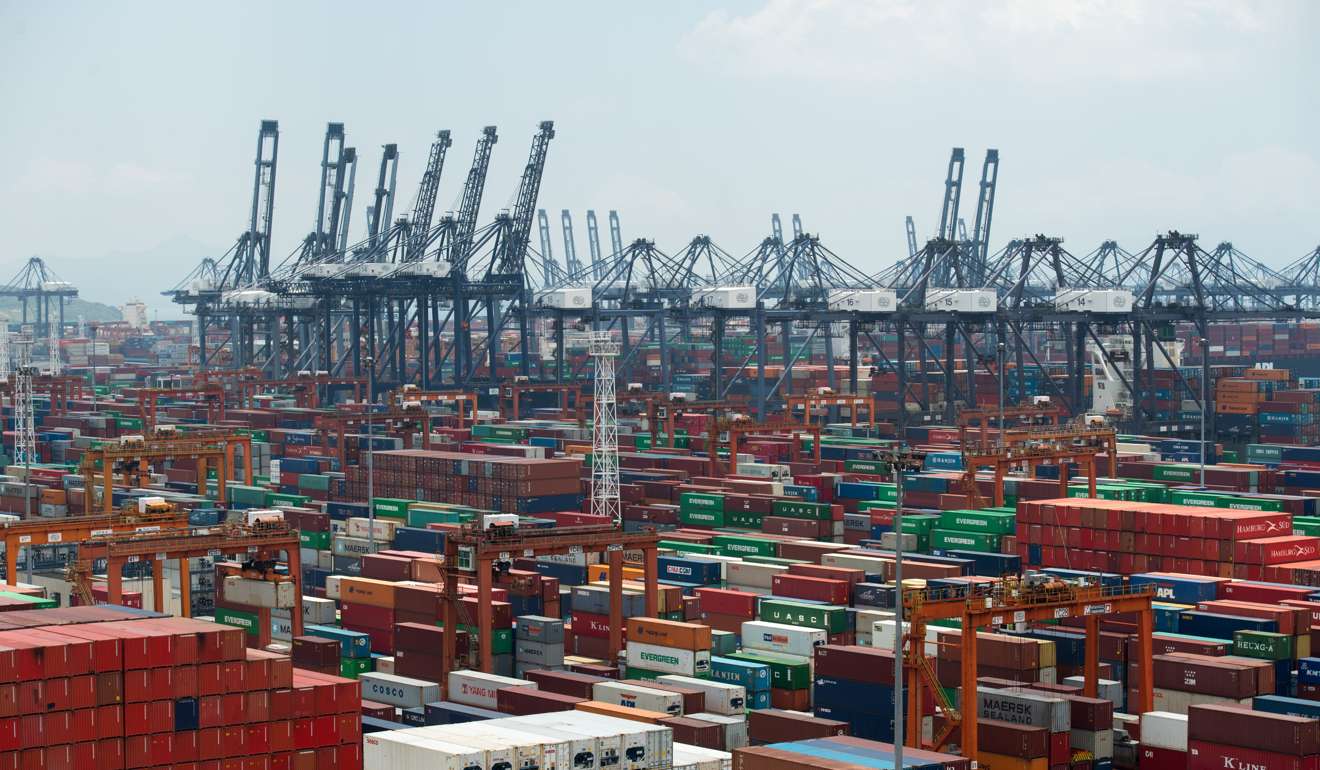China’s global currency dream revived after Trump back-pedals on trade war threats
China is not a currency manipulator, US president says, while admitting US dollar is too strong

China should enhance and strengthen the role of the yuan as an international reserve currency, a senior Chinese central bank official said in an article published hours after US President Donald Trump said China would not be labelled as a currency manipulator.
The article by Zhu Jun, head of international department at the People’s Bank of China, published in the official Shanghai Securities News on Thursday, reflected Beijing’s regained confidence in boosting the global profile of the yuan – a longstanding target that had been put on the back burner since late 2015 when Beijing’s priority shifted to stemming capital outflow and the currency’s depreciation.
Zhu said China should work hard to promote the yuan’s international use partly because that its inclusion in the Special Drawing Rights currency basket of the International Monetary Fund is not permanent, and that the composition of basket will be reviewed in 2020.
“It’s a short time since the yuan was included in the SDR currency basket and it’s still in the start-up phase as a freely usable currency and as an international reserve currency,” Zhu wrote. “The yuan needs many more years of effort to demonstrate its advantage as an international reserve currency.”
The central bank official added that much work remained to consolidate global confidence in the currency, raising international “tolerance for its fluctuation flexibility” and to reduce the possibility of capital flight resulting from lack of confidence.
In particular, Zhu said, China should make the yuan “more freely usable”.
Zhu’s comments are a departure from Beijing’s attitude of a few months ago when the country was in emergency mode and imposing stricter conditions on outbound investment and payments.
Uncertainties intensified for the central government late last year when Trump threatened on the presidential campaign trail to label China a currency manipulator and impose punitive tariffs on Chinese imports, just as the Federal Reserve turned hawkish on interest rates.
But China’s fortunes improved in the last couple of months after Trump muted his trade war threats, capital outflows ebbed and domestic growth stabilised.
A week after Trump and President Xi Jinping agreed at their summit in Florida to start 100-day talks to solve the US trade imbalance, Trump told the Wall Street Journal on Wednesday that China had not manipulated its currency for months, and added that the US dollar was getting too strong.

“They’re not currency manipulators,” Trump said.
Meanwhile, China’s exports in March surged 16.4 per cent from a year earlier in US dollar terms, reversing a 1.3 per cent drop a month earlier and generating a trade surplus of US$24 billion.
Huang Songping, a spokesman for China’s customs administration, said in Beijing on Thursday that China’s trade surplus with the US widened in the first quarter.
But Huang said the bilateral trade surplus was a result of China’s position in the international value chain, namely importing components and exporting finished products, and the fact that the US restricts sales of certain hi-tech products to China.
China’s yuan exchange rate against the dollar has been hovering around 6.9 for months. The yuan/dollar mid-price in the onshore market was set at 6.8651 on Thursday, a significant appreciation from the day before when Trump said the dollar was “getting too strong”.
“It’s very, very hard to compete when you have a strong dollar and other countries are devaluing their currency,” Trump said in the Wall Street Journal interview.